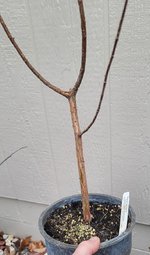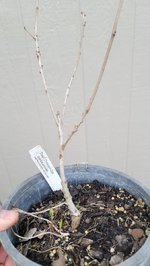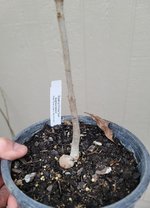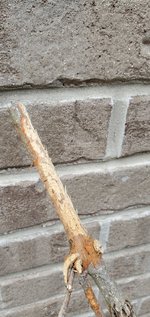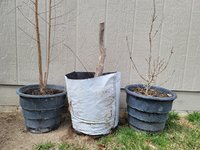Thank you Leo! One more question and perhaps the most important one... since we share the same hardiness zone... what are your favorite North American Trees to practice on?
Junipers - I initially was bored by junipers, lately I am appreciating them for being the "botanical silly putty", you can mimic any tree in nature using a juniper. Shimpaku is introduced from China & Japan, but certainly is the easiest of the junipers to work with. It is plop it on the ground for winter hardy in my area. The other native junipers I'm just starting to learn about. Most are "just set the pot on the ground" winter hardy. I still recommend avoiding Juniperus virginiana as being the "problem child" of the Juniper genus.
Thuja occidentalis - locally native, incredibly winter hardy, I am finding them a good conifer for bonsai. Named cultivars are propagated by cuttings more often than grafting. If you can find a 'Hetzi Dwarf' with a fat trunk, it is quite a good Thuja for bonsai.
Amelanchier - the service berries. I love the flowers in spring, flowering before the leaves expand. This member of the apple family is very winter hardy. I simply set their pots on the ground for the winter. Fruit is ripe by July, small and in proportion with even small bonsai. Fruit is tasty too. "eat your bonsai"
The pine I am excited about is Pinus banksiana, the jack pine. Winter hardy to zone 3, requires no protection over winter. Nice relatively short needles. Waring to others from warmer climates, Jack pine is a NORTHERN pine. If you have mild winters, it may not grow well. Jack pine needs a cold winter rest to thrive. If you live in zone 7 or warmer, do not bother with Jack pine, it will not do well for you. If you can not find Jack pine, the relatively closely related lodgepole pine is nearly as good. Pinus contorta latifolia. Pinus contorta contorta, the shore pine is better for people living in mild climates with mild winters. Zone 7 and warmer you are better off with the shore pine.
Highbush blueberries. Vaccinium corymbosum and related species. The northern highbush blueberries are "set the pot on the ground" for winter hardiness in zone 5b. Flower buds can be damaged at -16 F or -27 C, but vegetative buds are winter hardy to another 7 or more degrees F colder. I keep them as "set on the ground" winter hardy trees. Just sold my interest in a blueberry farm, which is how I learned about them. Blueberries have very specific soil requirements, and they have a bad habit of dropping older branches, but the pretty flowers, and tasty fruit make them my current fascination. Use the search function to find my contributions to threads on blueberries if they interest you. The lowbush blueberries are even more winter hardy than the highbush types.
Bur oak, I have one surviving now 5+ year old seedling. I am interested in how it will develop as bonsai.
I've got other projects, but without walking out into my yard, I can't think of what is today's favorites.




